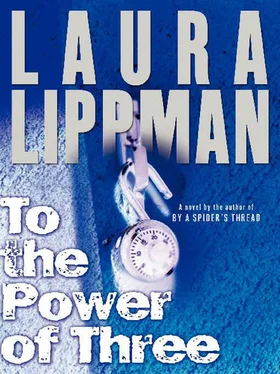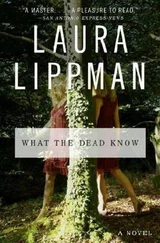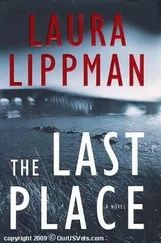Then again, it could be argued that someone such as Stan, who worked in an industry that few found desirable, was entitled to charge a premium. Dale had thought the funeral business might have changed, that it would be more like that television show, with lots of loquacious, quirky types whose own dramas could distract the bereaved from their problems. But it was still pretty much The Loved One -essential yet vaguely suspect, like aluminum siding.
The interesting aspect about the funeral business, from a businessman’s standpoint, was that it didn’t have to chase its customers when they headed out to the suburbs. Other merchants needed to go where the customers were, but Baltimore ’s mortuaries had stayed in place for generations, confident that their customers would come to them when the time was right. Who ya gonna call? Oh, shit, Dale was totally losing it, quoting Ghostbusters in his head, sitting like a bump in a funeral home while his girlfriend planned his daughter’s funeral. “Yellow roses” had been his only real input so far. Yellow roses and his credit card. But then, he needed all his energy to keep from breaking down every five minutes. Once, when he was seventeen, Dale had been rear-ended in a pretty bad pileup on I- 83. A runaway semi had come tearing over a hill and confronted an unexpected backup. It had careered from one side to another, tearing open a Corolla, throwing a big boat of a Chevy into Dale’s father’s Pontiac. But he was young, his reflexes good, and he had braked before hitting the pickup in front of him. When he got out, he was astonished to see the damage to the cars, his and all those around him, more astonished that he hadn’t been injured. Yet, within a few hours, he was vaguely sore and achy.
That was how he felt now, times a thousand. He felt as if he had been broken into pieces and glued back together, like a little pitcher or vase. He looked the same, but if you poured anything into him, it would all leak out. He couldn’t hold a thought, much less a conversation.
“And the casket?” Stan Jasper prompted. Dale pointed blindly toward a photo in the glossy brochure before him, and Susannah nodded, signifying that his random choice was a suitable one.
Dale had helped to plan one funeral before, his mother’s eight years ago, but he found he had no memory of it. Even if he did, he couldn’t see how it would help get him through this. The cliché held: Burying a parent was part of the natural order. Burying a child was not. His only child. Now he got it, the old saying about the monarchy, an heir and a spare. The parents of only children had forgone the spare, which mattered not as an issue of primogeniture but as one of emotional safe harbor. If you had only one, you could lose everything.
Chloe had wanted a second child, but Dale could never see the point and had been secretly pleased when she couldn’t conceive again. Kat was so perfect that he worried he would favor her over any sibling who followed, even a son. Besides, Chloe’s interest in conceiving had been as flighty and temporary as all her plans-going back to school, becoming a certified yoga instructor, starting her own aromatherapy business. In the last instance, she had actually commissioned a sign, a hand-painted piece of wood proclaiming JUST GOOD SCENTS. The sign had cost four hundred dollars and was still, as far as Dale knew, tucked somewhere in the overstuffed garage, probably between Chloe’s kiln and Chloe’s skis.
“We aren’t as familiar with the, uh, liturgy as we should be,” Susannah was telling Stan Jasper. “And we don’t have a pastor, not really. But we would like the service to be, well, original. That is, it should be specific to Kat. Would it be appropriate, say, to use one of her favorite poems?”
“That would be utterly appropriate,” Stan said in his professionally assuring tones.
“ ‘ Dover Beach,’” Dale said.
“Sweetie?” Susannah squeezed his fist again.
“She was rehearsing a poem called ‘ Dover Beach,’ or a piece of it, for the graduation ceremony. ‘We are alone as if…’ something, something. I remember something about ignorant armies. She picked it out herself.”
“A poem would be nice,” Stan said carefully. “Although that one sounds a little-well, we don’t have to work out all the details right now.”
“Still, we’d like to make as much headway as possible on the arrangements,” Susannah said. “And Mrs. Hartigan may have some thoughts.”
“Will she be calling me?”
“Perhaps,” Susannah said in the tight, careful voice she used whenever the subject of Chloe Hartigan came up in any context. “Dale went out to see her this morning, but she didn’t feel up to coming today.”
That was one way to explain it, Dale thought. Upon hearing that he wanted an Episcopalian priest to officiate, Chloe had pitched a fit and then pitched a book at Dale’s head. A thin book, to be sure, The Prayer of Jabez, but it had smarted a little. She had thrown a book at his head and called him a hypocrite and a stupid cunt, and he was still puzzling over both charges. The latter was a word Chloe had never used, even in her most Tourette-like rages. Had she been so upset that she had garbled her insult, saying “You stupid cunt” as opposed to “You and your stupid cunt”? He wondered if other families would tell Stan Jasper all of this, pour their hearts out. Or perhaps death, the ultimate bodily function, made people overly decorous and circumspect. Right now, for example, he knew he felt some odd need for the undertaker’s approval.
Yet here was a guy who was going to touch Dale’s dead daughter, who was going to oversee her final choice of dress, arrange her hair, supervise her makeup, pump her full of formaldehyde, or whatever it was these guys did. He’s going to see my daughter naked, Dale thought, and no man ever had. At least he was pretty sure that Kat was still a virgin, despite dating that college boy, Peter Lasko, a few summers back. Dale had disliked that guy from the moment he met him. There had been something predatory about him, swooping in to pluck Kat, then newly hatched from her baby fat. A nineteen-year-old college boy going after a girl who had just finished her first year of high school. He was slick, an opportunist. He had wanted to be an actor, for God’s sake, although Dale was pretty sure his greatest role was the nice-boy act he put on for Chloe, who ate it up sideways with a spoon. She had no judgment about people.
Then again, she always swore she liked Susannah.
“She’s so accomplished,” was what Chloe said. “She’s a great role model for Kat.” Dale kept waiting for the other shoe to drop, the insult that he was sure Chloe was holding back for the perfect moment. But she remained sweet as pie to Susannah. It was her way of underscoring the fact that Dale was her only enemy. Dale was the person she blamed for everything that had gone wrong in her life, even things that happened long before he showed up. Why? Their marriage counselor had spoken of the concept of shame, of the way that certain experiences left holes in people. Chloe had never gotten over her haphazard family, or the fact that her dreams were squashed so young. (Yet Dale’s father was as big a piece of work as anyone, and Chloe always mocked him for bringing that up.) Her ob/gyn had cited postpartum depression, but did postpartum last for fourteen years?
After the tumultuous years with Chloe, it had been hard at first to trust Susannah’s sweet, steady competence. “She has the best disposition,” Dale told his father when they started dating. “I hate to tell you this,” his father said, clearly not hating it, “but you said the same thing about the other one once upon a time.” Now, four years in, Dale had been proven right about Susannah. Always calm, always capable, never letting her emotions get the better of her. These were the things he loved about her.
Читать дальше












